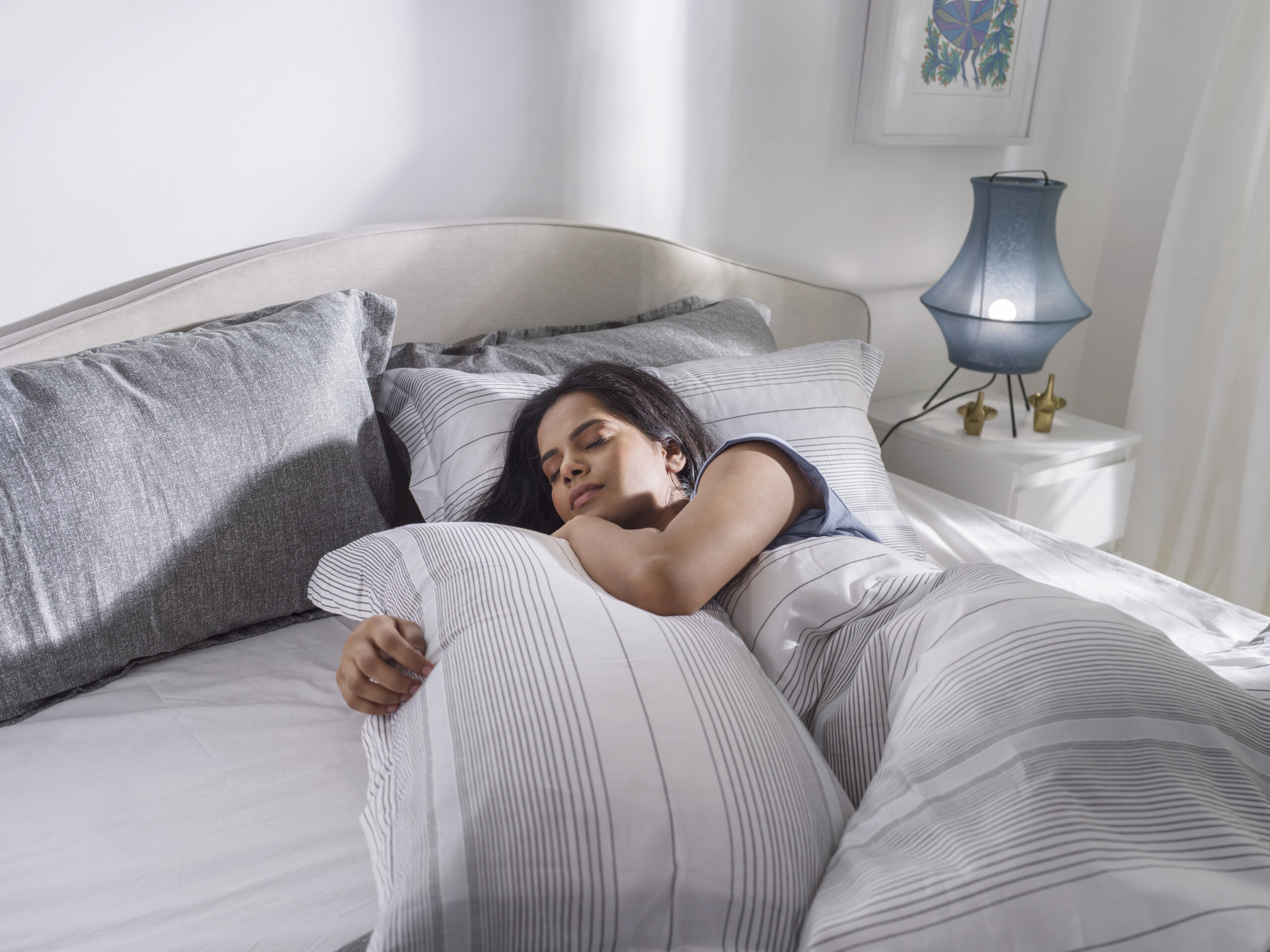The concept of sleep is so beautiful, yet many of us still yearn for more of it. When it comes to being at one’s best, getting a good night’s sleep seems to be the crucial element that makes the difference. Sleep is very beneficial to us since it improves our emotions and fortifies our immune systems.
However, have you considered how much your bedroom arrangement affects your sleep quality? It’s a lot, spoiler alert! You won’t be able to sleep like a fictional character if your room is a complete mess; it will be hard to fall asleep.
Therefore, if your room isn’t conducive to sleep, why not rearrange it? Your sleep schedule will be completely altered by such an atmosphere.
Choosing the Best Pillow and Mattress
Let me ask you a question: How recently have you actively maintained your mattress? It has probably been more than ten years if you are unable to recall. A proper mattress is essential for a deep sleep; if it’s too firm, you’ll feel like a bear has stung you, and if it’s too soft, your spine will have a permanent hunch. To determine what works best for them, it is best to actively test a variety of possibilities.
Colors and Lighting
On the other hand, I can completely see why you aren’t getting a good night’s sleep if your walls are painted a vivid neon yellow or bright red. Indeed, such vibrant hues can be amazing during the day, but at night, exhausted brains will undoubtedly find it difficult to process them.
To make a difference, try utilizing muted, gentle colors like light blue, soft green, or even neutral light grey. These colors are referred to as “the relaxed” hues; everyone can sense the serenity after just a quick look.
But a big component of its lighter vision is color. Is it appropriate for an interrogation room to have overhead lights? No way! Since it helps your mind understand it needs to rest, softness and warmth should be your top priorities while looking for the right lighting fixture for the space.
Warm glow bulbs or soft light bulbs are great. A side tip? Blackout curtains! They come in handy when the sun or street lights try to start your day earlier than planned and don’t seem to care.
Reducing Chaos and Maintaining Order to Encourage Calm
You would have known this was coming by now. Therefore, it is obvious that you have been under a lot more stress than it appears if using your bedroom as a storage unit has been your go-to tactic for a long time.
Once you begin scattering clothing, books, and other delightful bits of random debris everywhere, your “ideal paradise” turns into a soft mess. Following in Marie Kondo’s footsteps, only keep things that “ignite the light within you”!
Before going to bed, your brain would love it if your surroundings were orderly and disciplined. This makes it possible for peace and order to prevail. Investing in fashionable furniture with built-in bins, organizers, and storage is a smart idea.
Keep distracting surfaces uncluttered and move away from them. What is the rule that you must adhere to? An item is not worthy of a place in your bedroom if it does not help you unwind.
Room Conditions: Temperature or Air Quality
To cut right to the chase, your body functions best in spaces that are cool and fresh, so even sleeping becomes enjoyable. It is advised that the ideal temperature range for sleeping is between 16 and 19 degrees Celsius (60 and 67 degrees Fahrenheit). Prepare yourself for restless evenings if your room feels like a tundra or desert.
To maintain the ideal temperature in your space, you might as well invest in smart fans, heaters, and thermostats. You may think of it as creating your comfort zone.
Remember the quality of the air as well. An ideal gadget is an air purifier, which helps remove dust, allergies, and scents that could disrupt your sleep. The impact an air purifier has on the quality of your sleep and the air you breathe will surprise you.
Using Foliage to Create a More Calm Environment
Since air quality seems to be crucial, why not bring the outside in? Stress levels can be lowered, and a very Zen-like atmosphere can be created using plants. They contribute to air purification and have a nice appearance. These consist of lavender, peace lilies, and snake plants.
Don’t worry if you have trouble keeping plants alive; even low-maintenance plants like succulents or pothos can be helpful. And even if you’re saying, “Plants are so not my thing,” you can still satisfy the criterion by using a realistic artificial plant or a vase of fresh flowers to create a serene environment.
Areas Without Technology
Okay, so this is the bit that nobody wants to hear. Indeed, your laptop, tablet, and phone will be the cause of your lack of sleep. Looking at TikTok while bundled up, that blue light is tricking your brain into staying awake, even when everything appears to be alright. Your sleeping habits can be greatly improved by creating a no-technology zone, especially in your chamber. Establishing a rule requiring screen time to be avoided for up to an hour before bed is a good place to start.
If at all possible, keep your electronics out of the bedroom while they charge. This not only helps you unwind, but it also gets you ready for another ritual before bed. Would anyone like to read a good book or just keep a journal? As long as you’re feeling energetic, you won’t mind not having electronics in the morning.
How to Makeover Your Bedroom to Improve Sleep Quality
Evaluate your bedroom honestly and think about making minor but practical changes to improve your quality of sleep. Every little change you make, like bunking your mattress or prohibiting electronics in your sacred sleeping area, brings you one step closer to getting the solitude you need.
Anything from clearing up the clutter to purchasing blackout curtains could be the initial step in this process. You will eventually be much more excited to burrow into your bedroom, which is now a soft-clouded haven rather than just four walls enclosing you. Sweet dreams are waiting for you!
FAQs:
1. How often should I buy a new mattress?
Experts in qualitative measures advise that you get a new mattress or replace your old one after seven to ten years. If the existing one is sagging or uncomfortable, think about getting a new one.
2. What kinds of plants promote restful sleep?
Lavender, peace lilies, and snake plants are all excellent choices for sleep because they are known to promote calm.
3. Is using the bedroom as an office appropriate?
In an ideal world, the response would be no. Your association of the bedroom with sleep may be hampered if you try to cram work-related stress into a place that shouldn’t have it.




